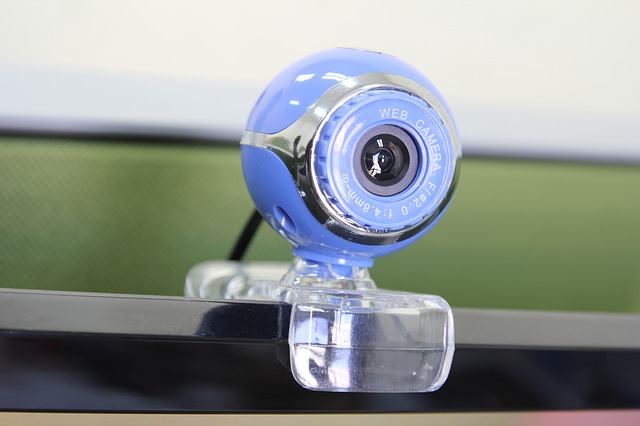Accenture Application Process & Interview Questions (2026 Guide)
All products and services featured are independently selected by WikiJob. When you register or purchase through links on this page, we may earn a commission.
Accenture is a multinational company providing services in strategy, consulting, digital, technology and operations. It offers graduate schemes in a number of areas, including analytics, consulting and software engineering.
The company’s recruitment programme focuses on identifying candidates’ individual strengths through an immersive process that uses augmented reality, virtual reality and strength-based interviews.
The aim is to provide a level playing field for applicants from all backgrounds, as well as reflecting how digital innovation is embedded in all aspects of life at Accenture.
The application process may vary depending on the programme the candidate has applied for, but is likely to follow all or most of the following stages:
- Application Form
- Immersive Online Assessment
- Digital Interview
- Assessment Centre
If you are required to do a phone interview, treat it in the same way you would a digital or face-to-face interview. Make sure to do your company research, be clear and concise in your answers, and try to make a connection with the interviewer if possible (for instance, asking what they enjoy about working at the company).
On average, the application process should take around 28 days from start to finish, although it may take longer during busy recruitment periods.
Following online applications and interviews, Accenture aims to respond with a decision within 10–15 working days. So if you are invited to an assessment centre, you should (in theory) receive feedback within 15 days from its conclusion.
Accenture receives a high volume of applications for roles every year. Consequently it can close applications earlier than expected, so be sure to apply early.
Academic Entry Requirements
Accenture has removed UCAS points requirements, to open roles up to a broader range of candidates.
Academic requirements, such as a bachelor’s degree, still exist for graduate programmes but vary from scheme to scheme; check before applying.
Where requirements apply, they are usually fixed. However, extenuating circumstances, such as illness, will be reviewed on an individual basis. If you feel this applies to you, contact Accenture to discuss your situation.
You should also contact Accenture directly if you require reasonable adjustments at any stage in the application process.
Core Values
Throughout the application process, Accenture will be looking for candidates who understand its core values and have the knowledge, skills and capabilities to meet them.
It is important to know what Accenture stands for and to find ways to directly align yourself with those values at each stage of the application.
Accenture’s core values are:
- Client Value Creation – Helping its clients perform at the top of their game, while developing long-term relationships.
- Best People – Accenture aims to attract, develop and retain the very best people for its business. It expects its employees to demonstrate a can-do attitude.
- One Global Network – Using global insight to deliver exceptional service to clients worldwide.
- Integrity – Emphasising a commitment to ethical and honest behaviour, and taking responsibility for its actions.
- Respect for the Individual – Valuing diversity and encouraging an open, trusting and inclusive environment.
- Stewardship – A commitment to building a better company for the future and protecting the company brand, as well as helping to improve communities and the global environment.

Prepare for Accenture Application Process & Interview
Application Form
The Accenture application form is your first chance to make a strong impression, so take your time and ensure you are fully prepared before you begin.
Remember that you can only apply to one programme at a time – and if you are unsuccessful, you must wait at least six months before reapplying.
So, your first step should be to thoroughly research the programmes you are interested in, making sure you understand what the role would involve and the criteria for applicants.
Information on the different Accenture graduate programmes is available on the company’s Apply Zone, and you can find out more about life at Accenture on its blog.
On the application form, you will be asked to provide details of your background, experience, skills, interests and education.
You may also be required to complete some short competency questions and a psychometric questionnaire, plus you will need to upload your CV.
Make sure you have all the information you require to complete the form and that your CV is up-to-date – look at our complete guide to writing a CV to make yours as effective as possible.
Give as much detail as you can about your extra-curricular activities and anything else that may be relevant to your application.
Your aim is to build a detailed portrait of yourself, demonstrating that you are a skilled and well-rounded person who would be a good match with the corporate culture at Accenture.
Remember, wherever possible, to identify experiences and skills that correspond with Accenture’s six core values, using specific examples.
Assessors are very likely to bring up information you have included in your application form at interview, so make sure you are prepared to discuss it in detail. Make written notes or keep a copy of your completed application form, so you can refresh your memory before the interview.
And, as with any application form, do not be tempted to embroider or falsify any information; interviewers are adept at digging deep and spotting inconsistencies.
Immersive Online Assessment (2026)
If your initial application is successful, you will be sent a link to complete an online assessment through an Accenture portal.
These tests are bespoke to Accenture and are designed to evaluate candidates’ cognitive function and ability, as well as their proficiency with technology and business acumen.
They are also an opportunity to learn more about Accenture and how the company works.
Depending on the programme you have applied for, you will be presented with a mix of assessments and will be scored across a number of key capabilities. These could include:
- Motivated learner
- Online collaborator
- Tech advocate
- Client partner
The assessments are likely to include:
- Situational judgement tests (STJ)
- Numerical reasoning
- Logical reasoning
Prepare for Accenture Application Process & Interview
Situational Judgement Tests
These are designed to assess whether you fit the core values that Accenture is looking for.
You will be given challenging situations that you may face during your role at Accenture, and will be asked to choose an appropriate response.
The answer you choose will help the assessors examine whether you have the skills and characteristics they are looking for.
You may find that all the possible responses to a given situation have their merits and could be an appropriate option, so the difficulty lies in differentiating between those which are practical and those which are desired by Accenture.
You can only choose one response in each situation and there might be a trade-off between drawing on different qualities, such as leadership, determination or creativity.
You will need to use your judgement to ascertain which is most appropriate in each scenario.
A familiarity with Accenture’s core values will help you understand what assessors are looking for, but it is best to answer the questions honestly.
The tests are designed to pick up on signs that you are manipulating your answers, or focusing more on analysing the question than responding with sincerity.
Numerical and Logical Reasoning Tests
These will measure your problem-solving skills and ability to see patterns and consistencies in data, along with your ability to logically work through text to extract meaning, information and implications.
WikiJob has a wealth of informative articles on all forms of aptitude tests as well as free practice questions to help you prepare.
The Accenture tests are not timed, but you will need around 60 to 90 minutes to complete the tests, and it's recommended that you take them all in one sitting.
The assessments are time-recorded but how long you spend on them is not a factor in your final result.
Find somewhere quiet and comfortable to complete the assessment, ideally using a laptop or PC. Although the tests are mobile-friendly, Accenture strongly recommends doing them on a desktop in full-screen mode.
The tests will work best on Chrome, Internet Explorer version 11 or later, Safari or Firefox, and you should disable any pop-up blockers before you begin.
When you begin the online assessment, you will be taken through a detailed tutorial which explains how to complete the tests. Read through all the information provided carefully before proceeding.

Digital Interview
Following the online assessment stage, you may be required to submit a video interview, which involves recording your answers to a series of questions. Accenture has partnered with HireVue, a digital hiring platform, to facilitate the digital interview.
The process involves a skills test in multiple-choice format, as well as a video interview where you will record answers using a webcam, either on a computer, tablet or smartphone.
Typical HireVue questions can include asking about your strengths and weaknesses, long-term career goals and the reason for leaving your previous/current job.
If you are required to do a digital interview, questions are likely to focus on your motivation for applying to Accenture, what you know about the company and specific programme, and some competency-based questions.
Here are a few examples of questions that might come up:
- “Why Accenture?”
- “Why this programme?”
- “Why did you choose your particular degree programme?”
- “What is your long-term career plan?”
- “Who are Accenture's main competitors?”
- “Tell me about a few cases/projects you know of that Accenture has worked on.”
Before starting the interview, find out exactly what Accenture does and what you will be doing if you are offered a job. You should know who its major clients are and read several of Accenture's cases beforehand.
The assessor will want to see that you have researched your career options and can demonstrate your commitment to a career at Accenture.
Competency-based questions may also be asked to assess your:
- Decision-making and problem-solving skills
- Innovation and ability to work with uncertain parameters
- Persuasive skills
- Adaptability and flexibility
- Teamwork potential
Questions might include:
- “Tell us about a time you had to work with a difficult colleague and how you overcame this challenge.”
- “Tell us about a time when you displayed leadership skills.”
- “Tell us about a time when you used your creativity to solve a problem.”
You should be prepared to discuss specific situations where you have demonstrated the skills being assessed.
Think about experiences in academia, work, voluntary roles and extracurricular activities to select examples. Remember to use the STAR method (Situation, Task, Action, Result) when framing your response.
Video interviews can be daunting if you have never done one before. The following tips will help you to feel relaxed and prepared:
- Practise recording some interview answers first to make sure you feel confident using the equipment. This will also give you a chance to study your body language and tone of voice.
- Find a quiet place to record and make sure the background of the shot is neutral and tidy. Check the lighting – natural lighting is best – and make sure your face is clearly visible.
- Look at the camera rather than the screen when giving your answers, and make sure it is positioned at eye level.
- Dress as you would for a face-to-face interview – this means smartly and conservatively. If you are not certain of the appropriate dress code, have a look at images on Accenture’s website for a guide.
- Maintain a confident posture, use your hands to express yourself (but don’t fidget) and project your voice. Consider showing some practice recordings to friends and family for feedback on how you are presenting yourself on camera and any improvements you could make.
- Stay focused. Switch off your phone and any other programmes on your computer.
You can also read our informative guides for help with specific interview questions, including:
Assessment Centre
The final stage of the Accenture graduate recruitment process is the assessment centre.
This is held at Accenture offices with members of the recruitment team and will last around half a day.
It will consist of:
- Some short challenges with a recruiter
- A short paired exercise with another candidate
- Assessments using Virtual Reality (VR)
- A one-to-one strength-based interview.
Prior to attending the assessment centre, you will be invited to join an online Q&A session with an Accenture recruiter, who will answer any questions you may have.
You will also be asked to research a relevant topic to discuss with an assessor during the session. The topic is likely to have a focus on current tech trends.
This is not a presentation, but you will need to talk about your given topic with the interviewer for at least 10 minutes.
Assessment Task Examples
You may need to perform a range of different tasks or exercises during the assessment centre. Some examples are below.
Example 1 – In-Tray
You have to complete a pen and paper-based project handover in 30 minutes. You will need to read and filter material and emails provided in a pack containing graphs, timelines and text.
The goal is to identify issues that will affect:
a) project delivery
b) project financials
c) other
Then pick and prioritise the main issue in each case and suggest one mitigating solution. Finally draft an email to the project lead detailing your activities for the week.
Not all the information is relevant so you will need to prioritise and focus on the main points. For example, if you're looking at project delivery issues, a project timeline graph is probably going to be useful whereas a table detailing contractor rates and hours isn't.
Example 2 – Case Study
You are given 20 minutes of preparation time to discuss a case study with a recruiter or senior manager for 20 minutes.
The specific case: TWD wines and spirits have invested in an online presence and are now looking at the customer/ consumer market when traditionally their business is wholesale.
Revenues are up but profits are down and IT is not functioning properly. There's a booklet of material including a company summary, staff interviews, emails from the CEO, their supply chain diagram and two articles on consumer behaviour. You need to identify key issues and suggest solutions.
Try to condense the information down to perhaps three main issues. Be aware of where, how and why you identified them so you can demonstrate that you have assimilated the information and are able to use it constructively.
Have solutions in mind for each of the issues but keep it simple and make logical sense, for example, implement a more suitable higher spec IT system that can store more data, re-organise the structure of the company, put together a communications plan to improve morale by getting everyone involved and so forth.
The exceptional candidate will link these solutions to case study examples found on the Accenture website. Most importantly, don't waffle; keep the discussion structured.
Example 3 – Team Exercise
You have 30 minutes to produce a proposal for building a school in Mozambique for 200 children, with educational themes and a complete list of materials required, delivered in a five-month project plan. Each team member will also deliver a 30-second presentation on a key point about the project.
This task is all about teamwork and communication. Ask how the team would like to approach the brief. As a team, decide on what the task is asking and break it down into elements. Move through each element systematically and keep an eye on the time. For the presentation, say everything you need to in 30 seconds, as you will be cut off otherwise.
Virtual Reality Assessments
As part of the assessment day, you will be asked to complete some assessments in virtual reality (VR). These are provided by CAPP and consist of three different virtual reality scenarios.
In each one, candidates will be judged on their skills and strengths in interpreting data, solving problems, resilience and working agile.
-
Exercise one – This is set in an Egyptian crypt where you will find a set of hieroglyphs, which you must move into the correct sequence in as few moves as possible. Lights will change to indicate if the hieroglyph is correct but in the wrong place (yellow) or correct and in the right place (green).
-
Exercise two – Here you will find 10 podiums, each presenting a problem that needs to be solved. These may include moving rocks into correct size order, counting the number of cubes in a box or naming the capital cities of given countries. You will have seven minutes to complete the exercise and two of the tasks are impossible to complete in the time. You will need to decide which tasks to complete, how to get as much done as you can and when to move on, so this task evaluates your project management skills and how you make decisions about prioritising.
-
Exercise three – The final VR exercise is an office simulation. You will find a virtual iPad containing information on a live project. You will need to analyse the status of the project before dialling into a conference call and recording a summary of your findings.

Interview
Interviews at the assessment centre are now strength-based, which means the questions will focus on learning more about what motivates you as well as some situational judgement questions to explore how you would tackle particular work situations.
Some examples of strength-based interview questions include:
- “What are you good at?”
- “What are your weaknesses?”
- “Tell me about your greatest accomplishment”
- “How would a close friend describe you?”
- “How do you stay motivated?”
These types of questions do not have a right or wrong answer; they are designed to avoid candidates arriving with a set of pre-rehearsed answers.
The interviewer wants to gain insight into your personality and natural attributes, and they will be observing your body language throughout. As such it's important that you are honest and genuine in the responses that you give.
However, it is still possible to prepare to a certain extent. Refer back to Accenture’s core values and consider how you might use a strength-based interview question to show that you are the kind of person Accenture is looking for.
You will need to give examples to illustrate your answers, so think about how you can use specific experiences from your studies, employment or other areas of your life to demonstrate your strengths and what you are good at, aligning these with the core values wherever possible.
This article on common interview questions provides more detailed hints and tips on preparing for strength-based interview questions.
And don’t forget to go back through your notes on your original application form, so you are prepared to discuss any information you included in more detail.
You will also have an oppotunity to ask the interviewer some questions, so try to make these insightful and relevant to increase your chances of standing out.
The new assessment centre process is designed to evaluate candidates on their natural talent, ability and potential – rather than favouring those who are able to give a carefully polished performance.
As such, the intention is that candidates cannot rehearse for the day but must respond instinctively to tasks and questions. That said, having an understanding of what to expect on the day will help you to feel prepared.
Being Made an Offer
Candidates at the assessment centre are not assessed against one another, but against a range of skills and attributes that Accenture has identified are necessary for success within the company.
So, if all candidates at the assessment centre are judged to match those criteria, they will all be made an offer. Likewise, if no candidates are deemed to meet the criteria, then no offers will be made.
You should be informed whether you have received an offer within 15 working days.
Candidates can expect Accenture graduate salary rates to start at around £33,500 along with a £10,000 bonus.
Dress Code
Accenture’s dress policy is smart business casual. This means that staff wear tailored trousers or a skirt, a shirt with a collar or a smart top/blouse.
When you meet your interviewer, they may not be wearing a suit. Candidates are not required to wear a suit (although they are not discouraged from doing so) but must be smartly dressed.
There is more information regarding dress codes in the General Interview Advice section.
Other Useful Resources
Try to meet a member of staff from Accenture at a graduate recruitment fair before you make your online application, as they will be able to provide you with useful hints and tips for applying.
The Accenture Careers page also contains lots of helpful information.
Alternatively, why not check out our article on how to write a CV for more hints and tips on applying for jobs or graduate schemes.


